Let Manchester Taxi Tours’ John Consterdine guide you through them…
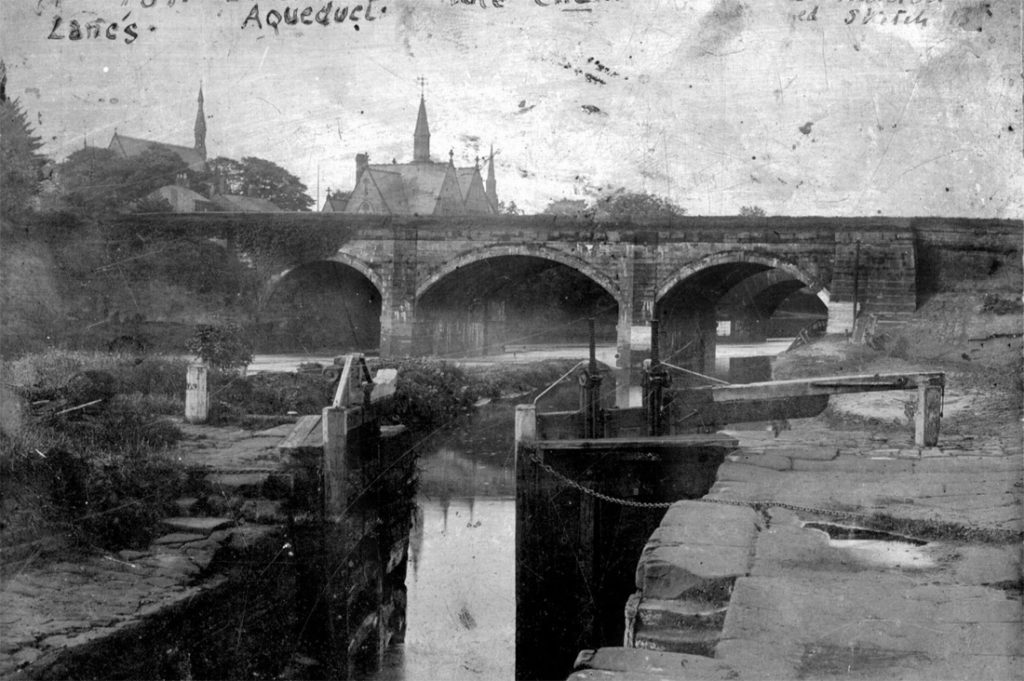
Built by The Duke of Bridgewater to transport coal from Worsley 5.5 miles to the west.
In 1750/60’s, The Duke of Bridgewater had two problems, coal which was expensive to transport and flooded coal mines. The solution came to The Duke in the form of a Canal. Parliament granted permission for the waterway on condition it reduced the price of coal coming into Manchester. This reduction in fuel prices and the advances in Steam Technology put Manchester at the forefront of the Industrial Revolution.
Along with coal other goods were transported into Manchester with Potato , Slate & Timber Wharves .This enabled the town to grow and started ” Canal mania ” the Bridgewater was extended out to Runcorn and the river Mersey ( 1762 ) and when the Rochdale Canal connected in 1804 , Manchester could trade East & West both nationally and internationally.
The Canal is still in use today, although mainly for leisure purposes.
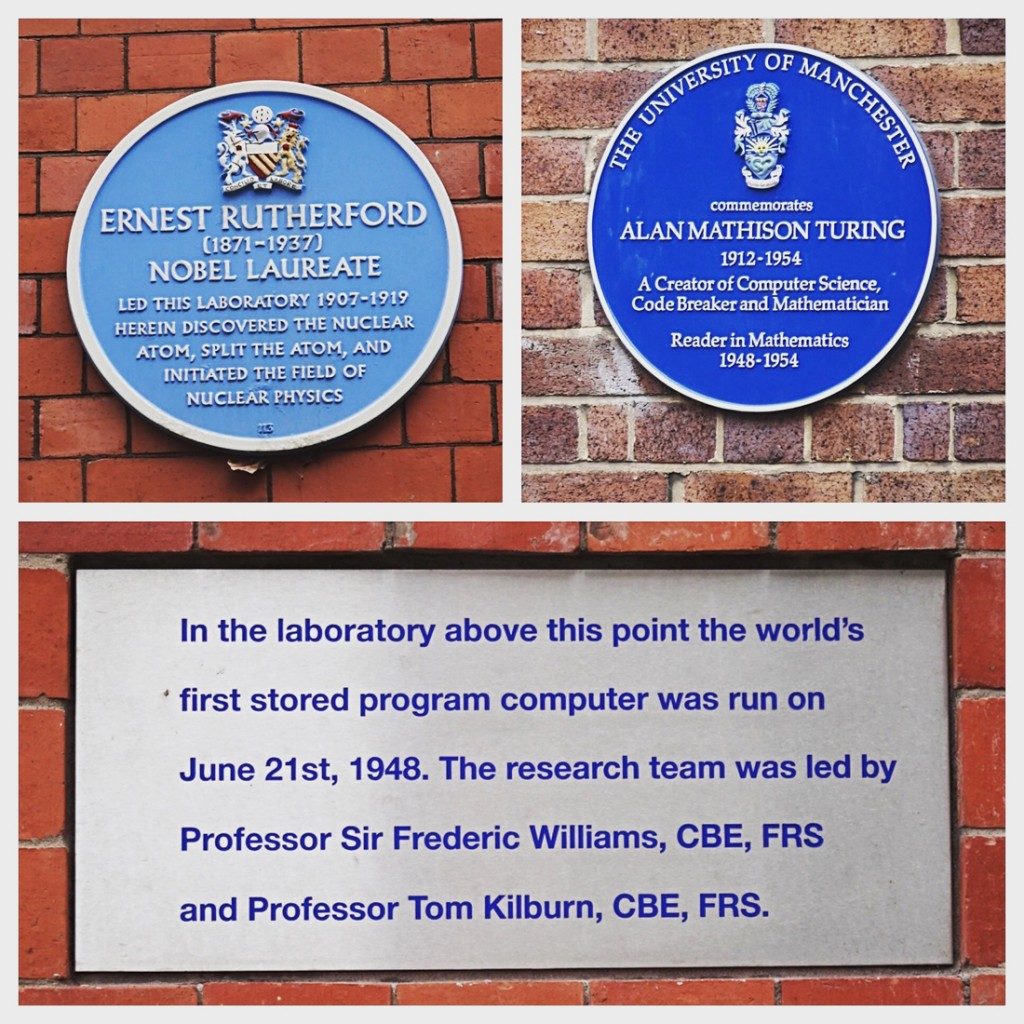
Manchester’s place in world history is assured, as no other city in the world can lay claim to being at the dawn of both the atomic and digital ages.
There are few discoveries in science that can be said to have changed the world, but one must surely be the ‘splitting of the atom’ by Ernest Rutherford in Manchester.
The Manchester Small-Scale Experimental Machine (SSEM), nicknamed ‘Baby’, was the world’s first stored programmable computer. It was built at Manchester University and came to life on 21st June 1948.
The fact that both of these world changing events took place in one city is amazing – but on one street?! Coupland Street, just off Oxford Road in the heart of Manchester University is where these events happened and must therefore be “the street that changed the world”.
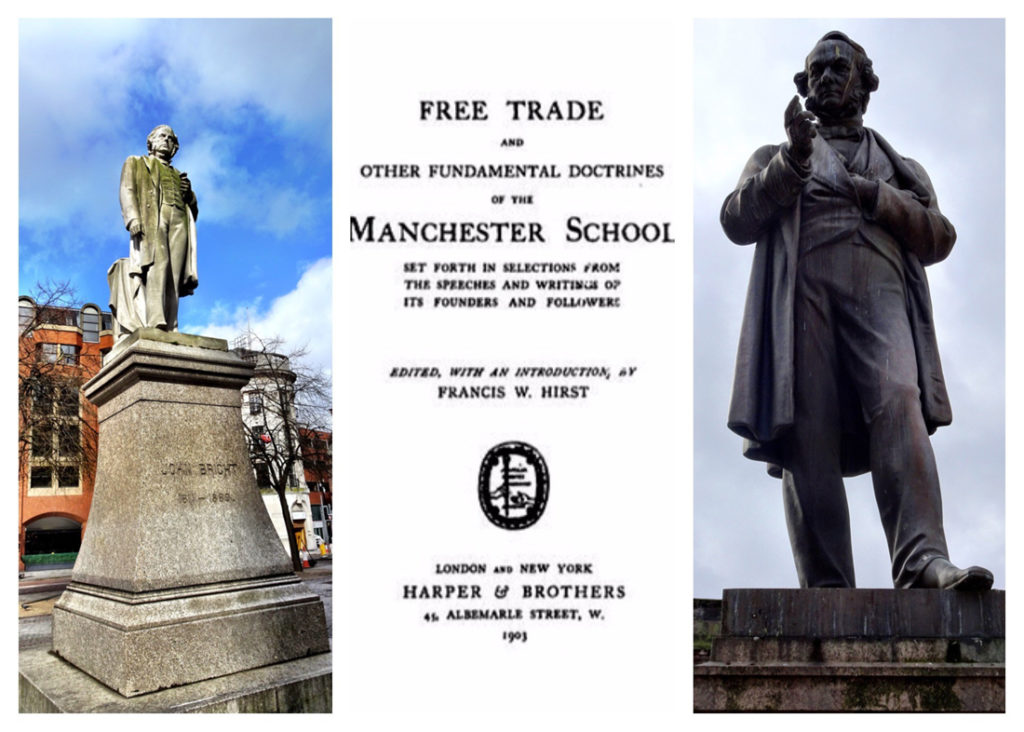
Manchester and Radical Politics are inextricably linked and the Free Trade Hall stands as a permanent reminder of the struggle of the working people to gain rights.
It was built on the site of the Peterloo Massacre; a mass meeting of working people which was halted by the armed forces of The Yeomanry, leading to many deaths and injuries. This event in 1819 caused shock around the world and eventually led to The Great Reform acts and changes in Government policies.
The Manchester School, as the political movement came to be known, gave lectures and produced articles on free trade, corn laws, war, colonial policy, education and social reform. Led by John Bright and Richard Cobden, the importance of the Manchester School can not be underestimated and led to a lot of the policies and privileges we enjoy today.
‘The Mask of Anarchy’ – Percy Bysshe Shelley
“Stand ye calm and resolute,
Like a forest close and mute,
With folded arms and looks which are
Weapons of unvanquished war.
And if then the tyrants dare,
Let them ride among you there;
Slash, and stab, and maim and hew;
What they like, that let them do.
With folded arms and steady eyes,
And little fear, and less surprise,
Look upon them as they slay,
Till their rage has died away:
Then they will return with shame,
To the place from which they came,
And the blood thus shed will speak
In hot blushes on their cheek:
Rise, like lions after slumber
In unvanquishable number!
Shake your chains to earth like dew
Which in sleep had fallen on you:
Ye are many—they are few!”
The Free Trade Hall is also synonymous with Manchester music. A concert in 1976 by the Sex Pistols led to a New Wave of music, but that’s another story. Now used as a hotel , The Free Trade Hall continually reminds us of Manchester’s Radical history.
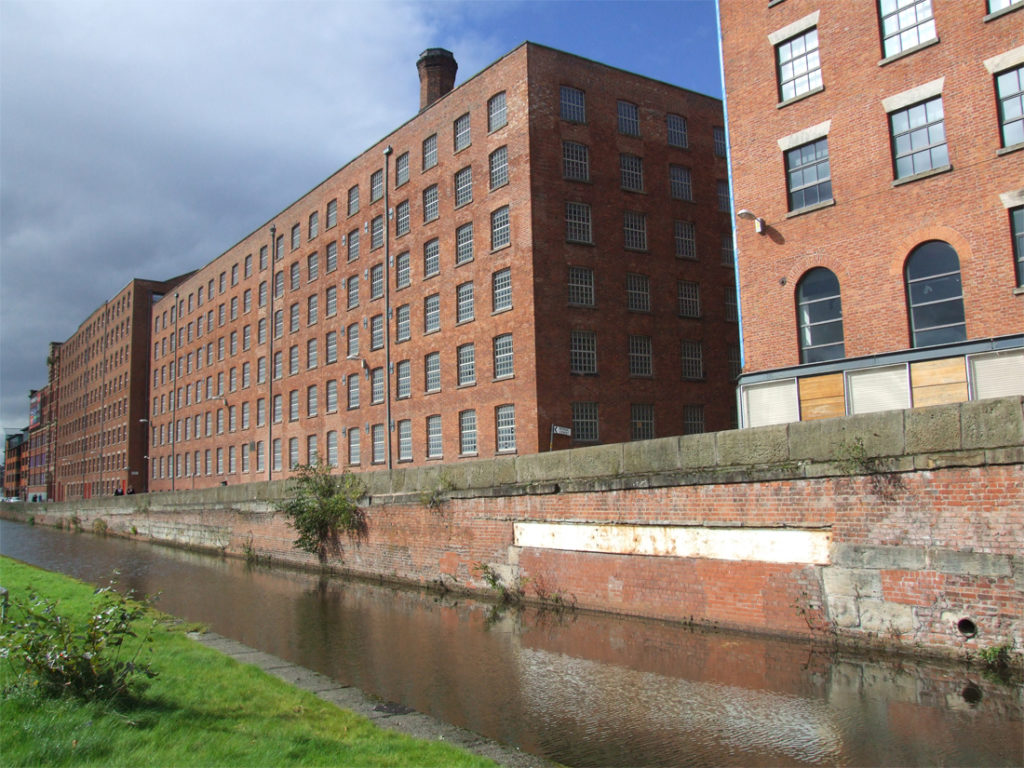
Manchester is known throughout the world as the the first industrial city. Ancoats therefore must be the first industrial suburb.
This is where Manchester changed the world. Steam power had been harnessed, along with the innovations necessary to mechanise the cotton industry. The factory system was born.
Standing on Redhill Street are the oldest steam powered mills in the world, you can almost hear the clogs of the mill workers making their way to work.
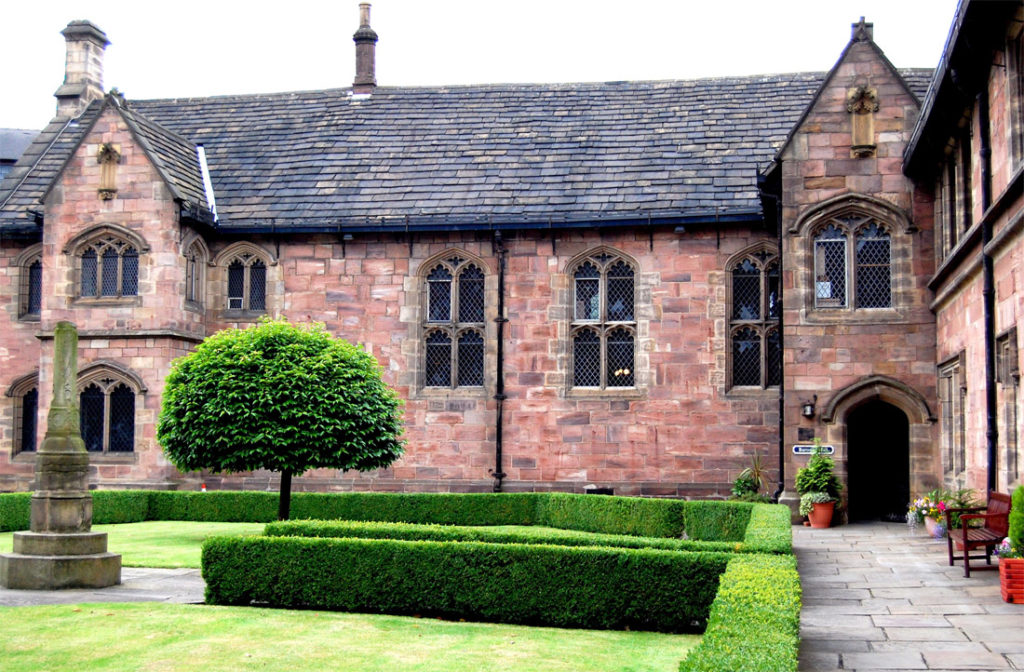
Manchester lays claim to many firsts and here is another – Chethams Library, the oldest public library in the English speaking world.
Founded in 1653 by Humphrey Chetham, the library is home to over 100,000 books amongst which are many first editions and rare copies of the world’s most famous books.
Still operating as a library, it’s amazing to sit and read ancient books where Karl Marx and Fredrich Engles sat whilst studying for the Communist Manifesto.
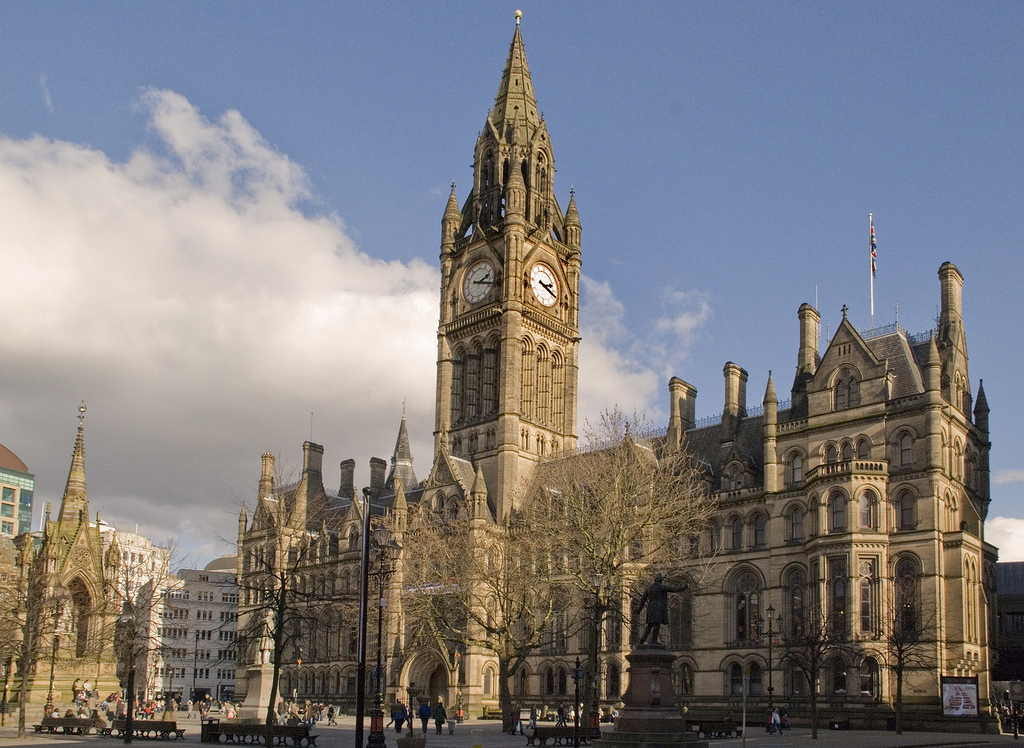
Manchester Town Hall is probably my favourite building in the city.
A quote from the council in 1863 when the plans for a new Town Hall were being discussed said “equal if not superior, to any similar building in the country at any cost which may be reasonably required.”
Standing in Albert Square looking at this building always gives me a great sense of pride, showing it off to visitors and explaining the history that went into building such an iconic structure.
Albert Square also acts as a focal point to the city. The Albert Memorial is often seen draped with Manchester United or City scarves, and is where the football fans head to celebrate famous occasions. It is also the main square for the famous Manchester Christmas markets .
The quote from 1863 is still as true today, no building in the world comes close to Manchester Town Hall.
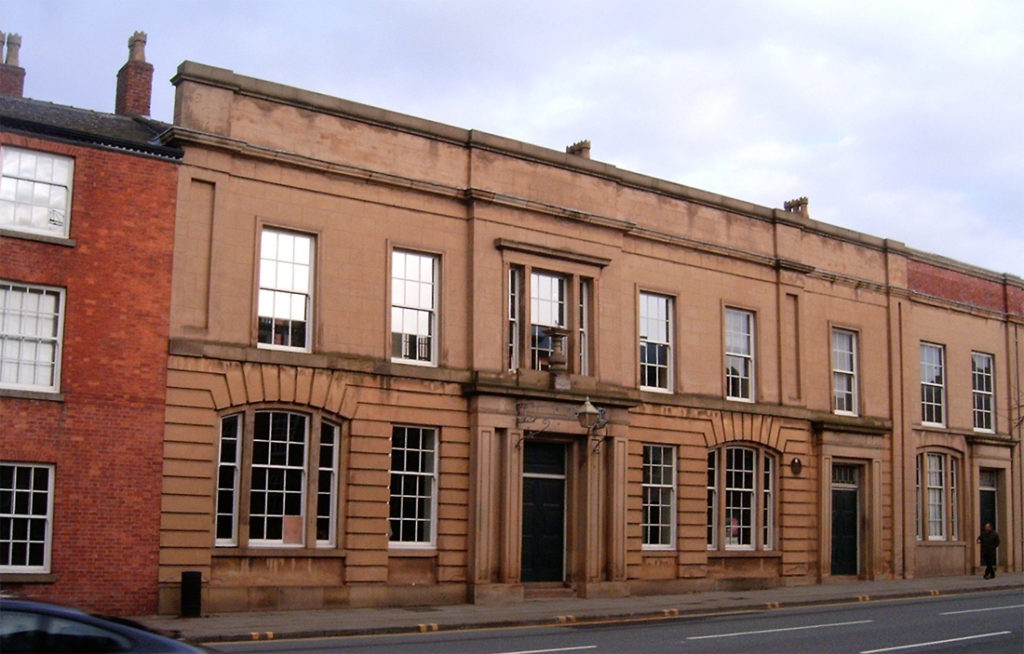
The oldest passenger railway station in the world.
One of the defining achievements of the Victorian age. The railways have transformed the world, enabling people to travel. The story is still evolving as trains become faster and new lines are opened.
Manchester in the 1820’s was importing goods and raw materials from all over the world. The merchants were looking for quicker and more efficient forms of transport.
“Certainly Manchester is the most wonderful city of modern times.” – ‘Coningsby’ – Benjamin Disraeli, 1844.
170 years ago, Manchester was captivating visitors. This continues up to the present day as the city continues to amaze tourists.
Take a Manchester Taxi Tour to be guided around the seven wonders, and see how Manchester has shaped the world.